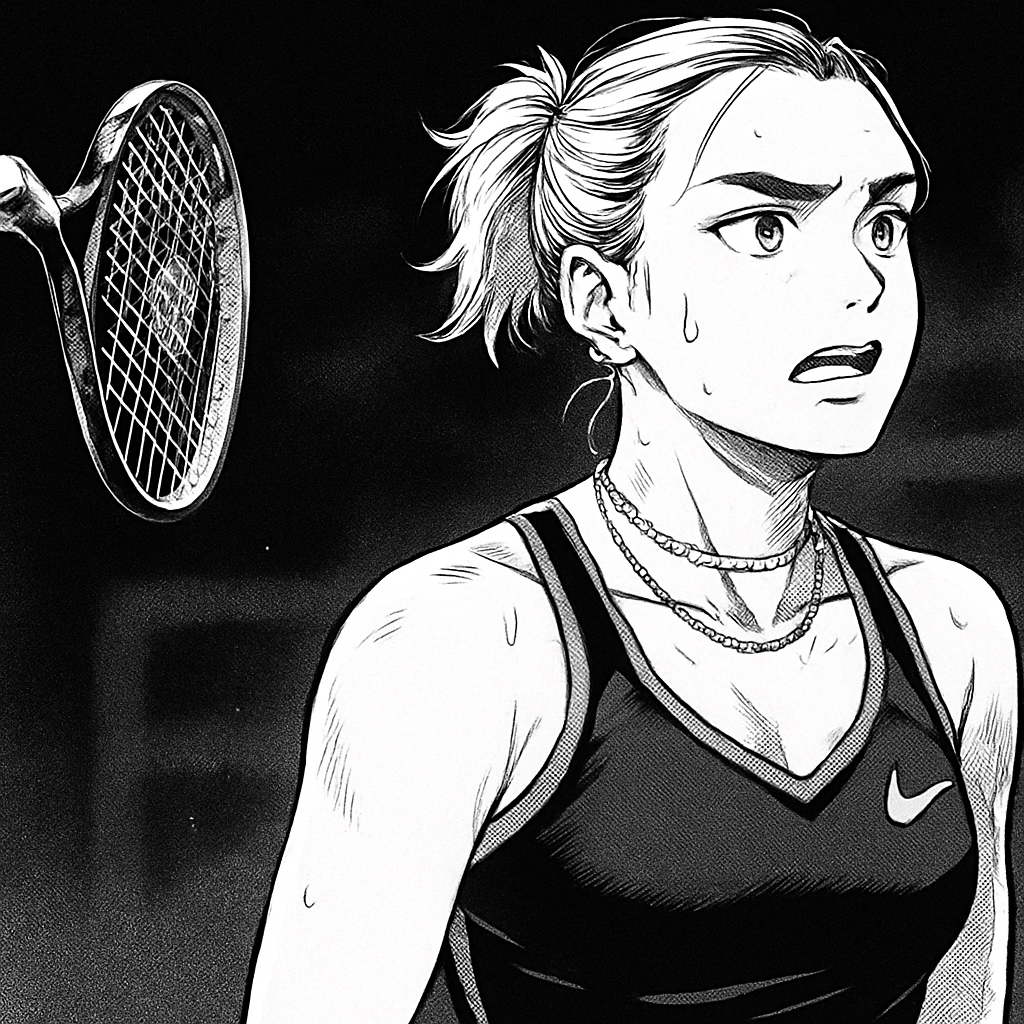WUHAN, China — World No. 1 Aryna Sabalenka has broken her silence following a dramatic and controversial incident at the Wuhan Open on Saturday that saw her nearly disqualified from her semifinal match against Anna Kalinskaya after angrily swatting a ball into the crowd.
The Incident That Shook the Court
The tense moment occurred during the second set of a fiercely contested battle. After losing a point to trail 2-1, a frustrated Sabalenka, who had already saved multiple break points, hit a spare ball with significant force from her position at the back of the court. The ball sailed high and wide, striking an elderly volunteer line judge who was seated at the side of the court. The woman was visibly shaken by the impact, immediately clutching her face as tournament officials and the chair umpire rushed to her aid.
Under the strict rules of tennis, striking an official or a spectator with a ball, even unintentionally, is grounds for an immediate default. The chair umpire, Marek Maliszewski, promptly called the tournament supervisor to the court. For several minutes, a heated discussion ensued between the supervisor, the umpire, and a visibly distressed Sabalenka, while the line judge received medical attention.
Sabalenka's Account and Emotional Aftermath
On Monday, Sabalenka took to her official Instagram account to address the situation directly. In a lengthy post, she expressed her profound relief and remorse. "I’m incredibly grateful this lady is okay and to have been able to finish the match," she wrote, acknowledging the severity of the potential outcome.
She described the emotional turmoil she experienced in the moments following the incident. "I’m aware how serious this was and how it could have turned out and I’m genuinely relieved to know the line judge is okay. I would never ever want to harm a person on the court or off the court." Sabalenka went on to explain the context of her frustration, citing the high-pressure nature of the match and her own struggle to find her best form against a tough opponent.
Ultimately, the tournament officials decided against a default. Key factors in their decision appeared to be:
- The action was not deemed intentional or malicious.
- The ball was struck away from the immediate play, not in anger directly at a person.
Instead, Sabalenka was issued a code violation for unsportsmanlike conduct. The Belarusian was able to regain her composure and went on to win the match 6-4, 1-6, 6-4, securing her spot in the final where she is set to face Elena Rybakina.
A Precedent of Strict Enforcement
The tennis world watched with bated breath, as the situation evoked memories of one of the most infamous defaults in the sport's history. At the 2020 US Open, Novak Djokovic was dramatically disqualified from the tournament after he struck a ball in frustration, accidentally hitting a line judge in the throat. The parallel was not lost on commentators and fans, highlighting the zero-tolerance policy often applied in such scenarios. The primary distinction officials had to consider was the direction and perceived intent behind Sabalenka's strike compared to Djokovic's.
Tennis analyst and former player Pam Shriver commented on the broadcast, "This is a nightmare scenario for any player. The rules are very clear, but there is always an element of judgment. The officials had to determine in that moment whether it was a reckless action worthy of a default."
Fan and Pundit Reaction
Reaction on social media and among pundits was divided. Many argued that the rules should be applied uniformly and that Sabalenka was fortunate to avoid the same fate as Djokovic. Others expressed sympathy, noting the clear lack of malicious intent and the immense pressure top athletes operate under.
The incident has sparked a broader conversation about player conduct and the interpretation of the rules regarding ball abuse. Key questions being debated include:
- Should the outcome (the official being unharmed) influence the penalty?
- How can officials better distinguish between intentional acts and reckless frustration?
Looking Ahead: The Final and Beyond
Despite the off-court drama, Sabalenka now must prepare for the final against a formidable opponent in Elena Rybakina. The mental fortitude required to refocus after such a scare cannot be understated. In her statement, Sabalenka concluded, "I’m going to learn from this and will do better in the future. Thank you for the continuous support, even in these difficult moments." How this experience affects her performance in the championship match, and whether it leads to a change in her on-court demeanor, remains to be seen, but it has undoubtedly become a defining moment of the Wuhan Open.

